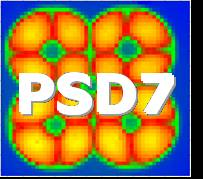Speaker
Mr
Alexander Furgeri
(University of Karlsruhe)
Description
The Compact Muon Solenoid is one of the experiments at the Large
Hadron Collider under
construction at CERN. Its inner tracking system consist of the world
largest Silicon
Strip Tracker. Its sensors are single sided n-doped sensors with p-
strip
implants, poly crystalline bias resistors and AC coupling. In total
24244 sensors
covering an area of 206 m² will be implemented in the tracker. In
order to construct a
large system of this size and ensure its functionality for the full
lifetime of 10
years under LHC condition, the CMS collaboration developed an
elaborate design and a
detailed quality assurance program.
After arriving at CERN the sensors are delivered to the Quality Test
Centers, the
Process Quality Controll Centers and to the Bonding Test Centers to
determine the initial
quality of the sensors. A fraction (around 1%) of the sensors is
sent to the Irradiation
Qualification Centers in Karlsruhe (Germany) and Louvain-la-Neuve
(Belgium), where they
are irradiated with 26MeV-protons (Karlsruhe) or with fast neutrons
(Louvain-la-Neuve).
After the irradiation with a fluence corresponding to 10 years
operation at LHC the
sensors are tested again to test the radiation hardness. If problems
occur special
irradiation campaigns have to be done to find out the origins and
the solutions for the
problems.
The talk describes the radiation environment of the CMS tracker and
after explaining
the radiation hardness concept of the sensors, the main results of
the irradiation
qualification with 26MeV-protons and the special irradiation
campaigns will be discussed.
Primary author
Mr
Alexander Furgeri
(University of Karlsruhe)




